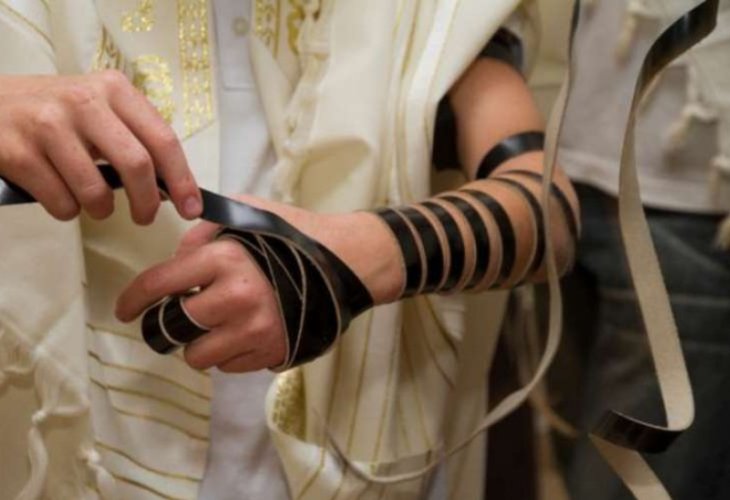Personal Stories
A Bar Mitzvah Like No Other: Joy From Every Balcony
Separated by balconies, united by heart—Ashdod neighbors made his special day unforgettable.
 (Photo: shutterstock)
(Photo: shutterstock)A Bar Mitzvah to Remember
By Naama Green
In the middle of a global pandemic, while the world stood still and families were separated, something beautiful happened in a quiet Haredi neighborhood in Ashdod.
One Shabbat, a boy was supposed to celebrate the biggest day of his young life—his Bar Mitzvah. But instead of a crowded synagogue or festive hall, the plan was simple and sad: just his parents and siblings at home. No party. No dancing. No grandparents, no friends.
But his neighbors had other ideas.
One of them, part of the building's “balcony minyan”—a makeshift prayer group formed when synagogues closed—decided he wouldn’t let the day pass without celebration.
He quietly hung a string of colorful lights, like the kind you’d see during a Torah procession. Another neighbor printed a huge sign with the boy’s name and wishes of mazel tov, and taped it across a building wall where everyone could see.
The gabbai (organizer) of the minyan got to work: a music playlist was chosen with care—songs of joy, of faith, of gratitude. Some were even practiced in advance by the kids in the building. A plan was set in motion. A program was printed.
And then… the special day arrived.
By early afternoon, the balconies began to shine. One child pulled out lights from their family’s Sukkah decorations to add to the growing glow. One by one, every balcony lit up, each one echoing joy. It felt like a neighborhood-wide bonfire, full of color and spirit.
The boys passed around the program, now stamped with the name of their proud little prayer group: “Ahavat Chaverim—Love Between Neighbors.” It included the Maariv prayers led by the Bar Mitzvah boy himself, words of Torah, singing, and even dancing from a local performer dressed in cheerful costumes on the empty street below.
Neighbors prepared thoughtful gifts. Bottles of l’chaim were passed around. Books were gently lowered from balconies like surprise blessings from above. One neighbor even climbed onto a ladder and removed part of his pergola to pass through a special gift.
And when the time came for prayer, the neighborhood lit up in more ways than one. The boy began his speech, his voice carrying from his balcony to the whole street. But the neighbors didn’t let him finish—not yet. They burst into song. The kind of singing that comes from deep within the heart. The kind that says: we are here with you. This is your moment. And it's ours, too.
The sounds of celebration could be heard throughout the neighborhood. The Ashdod police came to make sure people weren’t gathering, but even they paused to watch. The joy was too real, too moving.
It wasn’t a celebration in a hall, with flashing lights and a fancy menu. It was better. It was full of warmth, care, and unity—the kind that lasts long after the music fades.
As one neighbor put it:
“Who would have thought that social distancing could bring us closer than ever?”

